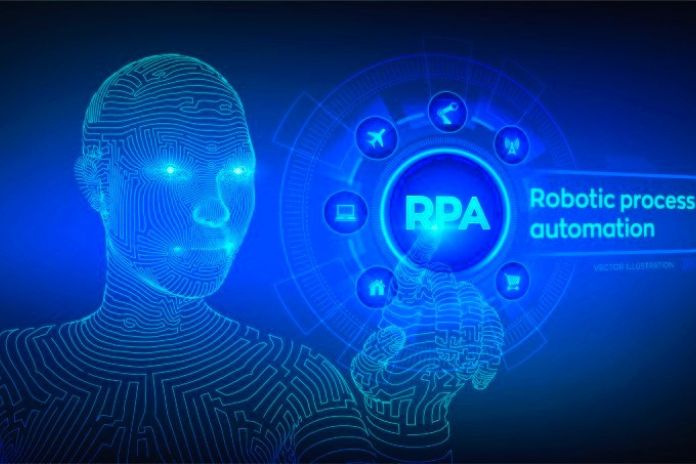With technological advances and digital transformation happening within companies, the need to gain speed, increase productivity and reduce errors, especially in operational activities, has become increasingly urgent.
Thus, RPA (Robot Process Automation) technology is directly linked to this demand; here, we will understand more about this technology and its benefits for organizations. Are you ready to learn more about process automation in your business?
Where Did RPA Technology Come From?
Robot Process Automation, or just RPA, is a technological application that automates business processes. This tool allows the company to configure software or a “robot” to capture and interpret applications, assisting in activities such as processing transactions, manipulating data, triggering responses, or communicating with other digital systems.
Despite using the term “Automation” in the name, RPA should not be confused with Machine Learning – ML or Artificial Intelligence – AI. RPA can include these two technologies in its processes, but it is governed by structured input and business logic, with rules that do not deviate.
The Robot Process Automation principle uses software or robots to perform routine tasks, such as registrations, queries, validations, and exports. This technology repeats human actions but in a much faster and more efficient way.
RPA also makes it possible to exchange information between systems without the need to build an interface between them. This way, it can browse and capture information within various applications or websites.
How To Apply RPA Technology In Your Business?
RPA can be used in different business segments to optimize business processes, mainly in operational activities.
In the customer service sector, technology plays a key role, as it enables recording a large volume of data without compromising service agility or effectiveness.
However, RPA can be used in the most diverse applications; some companies even use it to schedule the sending of automatic emails or notifications, others use it to generate reports, and everything will depend on the needs of the organization.
This automation makes it possible for processes to be carried out in a short time, unlike the manual way, which could take months to complete.
What Are The Main Benefits Of RPA?
They have already demonstrated how automation can benefit a business, but this technology has many advantages for organizations that use it in their processes.
So, here are some of these benefits:
Standardization of Processes: The execution of activities by robots enables the standardization of procedures, which is a significant differential for the company, in addition to helping in the measurement of results and the general control of the scenarios, allowing a macro view of the business.
Process Optimization: Technology also helps to make methods more efficient, streamlining attendance and production and making the environment more productive.
Decreased Errors: Errors are inherent to human beings, as we are not machines programmed to perform tasks repetitively without fail. But RPA systems work precisely that way, programmed to work with maximum precision and efficiency.
Reduction of Waste and Losses: A reduction in errors contributes directly to a drop in the number of waste and the removal of losses. Automated procedures guarantee agility, precision, and efficiency, ensuring the best results.
Better Use of Your Team’s Time: As one of the main goals of RPA is to act accurately in the most bureaucratic methods, it frees up more time for professionals to dedicate themselves to other activities.
Reduction of TMA – Average Service Time: The service time and resolution of a customer’s questions are essential for good service management. Timely delivery of an audience-oriented service is crucial, especially in direct service industries such as call centers.
Improved Communication: This technology can manage interactions and communication with the public, helping control the customer’s contact schedule, activating reminders for the team to follow the processes, or even alerting them in case of complaints.
Improved Customer Experience: The real value of an RPA tool is in providing a superior customer experience. People can react to face-to-face interactions in various positive or negative ways; depending on when and which agent the customer speaks with, they can have a very different experience.
What Will Be Your Next Step?
To differentiate themselves in the market today, companies of any size need to achieve service improvement goals and efficiency gains; only in this way is it possible to achieve service excellence and complete customer satisfaction.
Every company must not only consider the idea but also seek strategies to implement a process automation tool, act concisely and continuously so that this happens and remember that it is always possible to optimize what you have because victory is in the details.
Also Read: Robotic Process Automation: 5 Use Cases With Great Potential

